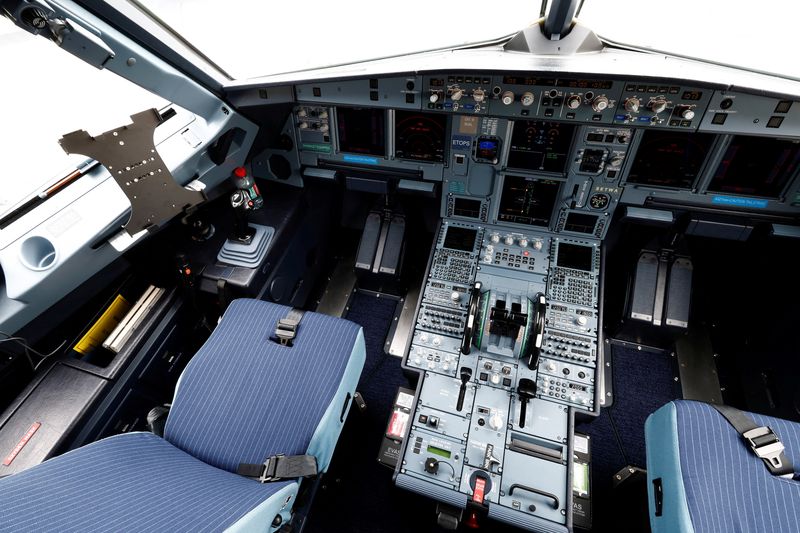By Joanna Plucinska
LONDON (Reuters) -Global regulators, aviation security specialists and manufacturers failed to reach an agreement on a quick technical fix to the problem of GPS spoofing near war zones at meeting on Thursday, instead calling for better training of pilots to deal with the issue, according to two sources briefed on the talks.
Airlines have been urging quick action after a series of incidents where navigation systems were disrupted to show a false location or wrong time, though aircraft flight controls remained intact.
Spoofing might involve one country's military sending false Global Positioning System (GPS) signals to an enemy plane or drone to hinder its ability to function, which has a collateral effect on nearby airliners.
GPS jamming and spoofing have grown worse in Eastern Europe, the Black Sea and the Middle East, according to industry group OpsGroup.
GPS is a growing part of aviation infrastructure as it replaces traditional radio beams used to guide planes towards landing.
The first international meeting bringing together the sector was held on Thursday in Cologne, Germany, organized by the European Union Aviation Safety Agency (EASA) and international trade group the International Air Transport Association (IATA).
GPS interference "can pose significant challenges to aviation safety," and requires that airlines increase data-sharing on jamming and spoofing events, EASA and IATA said in a joint statement.
"We need coordinated collection and sharing of GNSS (global navigation satellite system) safety data; universal procedural GNSS incident guidance from aircraft manufacturers; a commitment from states to retain traditional navigation systems as backup in cases where GNSS are spoofed or jammed," IATA Director General Willie Walsh.
More pilot training could help find an overarching solution to the problem, which experts say is set to worsen with increased global conflict, but it will take longer to approve and standardize any technology.
The sector needs to keep some of the older technology in place as an alternative to worsening GPS challenges, officials said at the meeting, according to the sources.
While technical solutions are also an option, they can be expensive, complicated and not always effective depending on what kind of spoofing is used.
As GPS interference attacks become more sophisticated, technical solutions would have to be consistently updated, creating a game of cat-and-mouse, one of the sources said.
A long-term solution also discussed was developing a second layer of authentication that would help check whether a GPS location is being spoofed.
This technology has been developed under Europe's Galileo program, the sources said, but is not yet in broad use.

One of the sources said regulators indicated it was unlikely that any change would be made in the pace of certification for certain technologies, which can take a decade to approve in civil aviation.
The next meeting focused on the issue will be a conference on navigation systems held in Antalya, Turkey, in early February organized by the International Civil Aviation Organization (ICAO), they said.